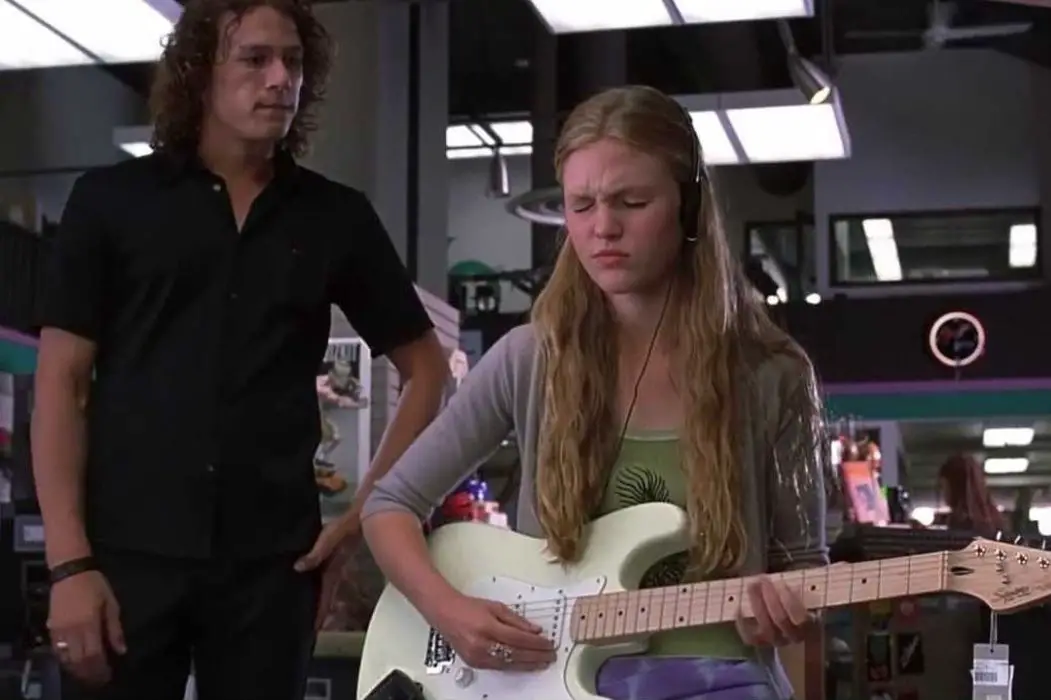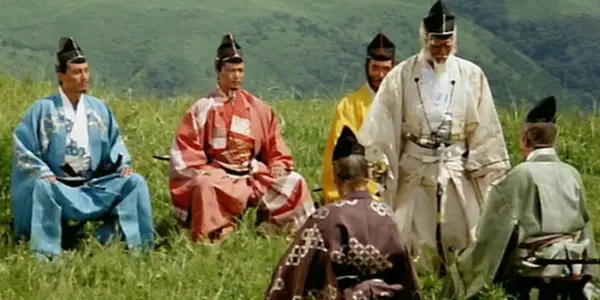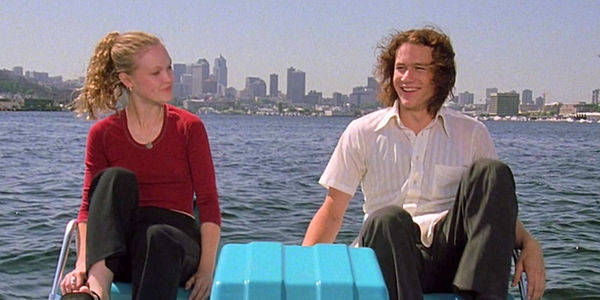Unconventional Adaptations That Keep Shakespeare Relevant

Zac Hestand earned a BA in Film from the University…
‘The play’s the thing’ –William Shakespeare
An often quoted phrase, but though taken out of context from Hamlet, the plays really are the thing. To list all of Shakespeare’s contributions to the English language and world culture would be too numerous, and tedious, to list. We use many words today coined by him. With a simple Google search, you can find Shakespeare invented commonly used words like swagger, bedroom, madcap, lonely, hint and countless others (over 1700 according to www.shakespeare-online.com). Community theatres still mount productions, and his plays are still read in schools. However, an immense number of people hate Shakespeare.
There are standard, yet reasonable, complaints: I don’t understand it (too many “thees” and “thous”), I don’t like it, why do we have to read these boring old plays? Also, some unreasonable ones: they’re not speaking English (actually, they are) and these plays don’t speak to me. This Shakespeare hate is attributed to how it is presented, one: his plays were meant to be seen, not read. Some plays translate well on the page, and can be read as prose, Shakespeare does not. His work needs the stage and screen to breathe life into the story (the general lack of stage directions are a factor). Those who say the plays don’t speak to them, number two: universal themes. Themes range from forbidden love, revenge, betrayal, jealousy, thirsts for power and other concepts that can also be found in programs in our Netflix queue.
With a gap of several centuries, and the joy of public domain, there are unlimited possibilities to adapt his work. Adaptations of Shakespeare are almost as old as cinema itself, with the earliest one dating back to 1898. With over a century in the movies, that gives plenty of time to experiment. The films compiled below detail how adapting Shakespeare in an unconventional way, while maintaining the main idea, keeps his work relevant and engaging with audiences.
Through the Eyes of Another Culture
With Shakespeare adaptations, the names Laurence Olivier and Kenneth Branagh are associated with bringing the Bard to the big screen. For a more unconventional association, one should consider the legendary Akira Kurosawa as the finest non-Western interpreter of Shakespeare.
Not to geek out, but Kurosawa is the grand visual poet of cinema. With his background as a painter, and attention to detail required to balance his subjects on a canvas translates to film. The framing of shots, use of wide lenses, backgrounds and how actors are blocked. Kurosawa brings his touch to Shakespeare by blending concepts uniquely Japanese with the universal themes found in these English plays.
His film, MacBeth that he will be king of Scotland. Through the half-baked scheming of Lady MacBeth, he kills Duncan, the king. MacBeth is plagued with paranoia, murders more and dies at the play’s end. The plot of this play also happens with Throne of Blood.
Kurosawa’s film moves the story from Scotland to feudal Japan, and our MacBeth character, Washizu (Toshiro Mifune) will be a lord, not a king. The film, drawing from the English theatre, merges it with its own theatrical tradition, Noh theatre. In Noh, characters do choreographed movement and their facial expression resemble the masks used in Noh productions. The film successfully blends the two styles to tell a universal story.

Ran is based on King Lear, about an old, dying king with three daughters and how he will divide his kingdom. This, of course, causes concern with the daughters and they fight for the biggest piece of land. Ran, like Throne of Blood, moves the action to feudal Japan. The king is now a Warlord, and the three daughters are now sons. Ran does not use Noh theatre, but tells Shakespeare as a samurai action epic with well-choreographed battle sequences.
By adding his own cultural heritage, Kurosawa is able to keep not only Japanese audiences engaged with his unconventional adaptation, but to Western audiences as well. Those latter members curious to see how other cultures respond to Shakespeare.
Shakespeare goes to High School
With teenagers as the largest group of people that don’t enjoy Shakespeare, it would be a matter of time for a play by the Bard to be set in a high school. Like the Kurosawa adaptations, the high school adaptations keep the central idea, but the characters talk and sound like typical teenagers.
The film, 10 Things I Hate about You, is based on the comedy, Taming of the Shrew. The play concerns two sisters, one of them is a bit of a wild one (the shrew). The non-wild sister cannot be with a man unless her wild sister has one, so a potential young suitor pays another man to attempt to “tame” the shrew, so the young man can be with the non-wild one. The film keeps the idea, but shifts it to the complications of teen dating and the intricacies of American high school social hierarchies, with hilarious results. The soundtrack may be a bit dated, but the movie itself is not.

On a more serious note, the film O is based on the tragedy of Othello. Othello, the “Moor of Venice” is a black man in command of an Italian military unit, romantically involved with a white woman and is the target of the jealousy, and racial hatred, of Iago. O trades Venice for the American south, and the military for a basketball team. Odin, changed from Othello, is the lone black player in a predominately white prep school. Like the play, it also ends with death, SPOILER: (teen suicide for the film).
Two films take these key plots and themes from the plays and mixes them with teen issues. Whether it’s the trivialities of dating, feeling like an outsider and forms of bullying, even Shakespeare is able to reach out and connect to teenagers with his stories from centuries past.
Shakespeare goes Way Outside the Box
Thanks to old sitcoms and second rate theatrical productions, Shakespeare plays have earned a reputation of being old fashioned, out-of-touch and stiff, production wise. During Shakespeare’s time, actors (women were barred from performing) portrayed the characters in a more presentation style than the psychologically based acting seen in contemporary performances. Sitcoms would keep the stereotypical presentation style when showing these plays performed. The productions had performers in tights, standing stiffly and speaking in a manner that borders melodrama. This mode of performance would turn off the serious and avant-garde theatre goer as well as the casual observer. To their surprise, even Shakespeare can be ambitious in style.
Titus, an adaptation of Titus Andronicus, is one of Shakespeare’s earliest works, and one seldomly performed. Shakespeare wrote 37 plays, but the same 10 or so seem to get revived again and again. In this story, a Roman general returns home from combat, and…it gets really strange from there. Director Julie Taymor adds quite the surrealist flair with the movie changing time periods (two Roman soldiers become punk rockers at one point), mixing genres, a rock music soundtrack and sudden graphic violence. Is this all real, or a dream? This is Shakespeare by way of David Lynch or Federico Fellini.

MacBeth is a tragedy, but what if it changed to a dark comedy? Scotland, PA takes the political ambition and murder in a Scottish kingdom and transports it to a fast food restaurant in a small Pennsylvania town. With the murder of a manager, instead of a king. Christopher Walken plays a vegan detective called in to solve the crime. This is now Shakespeare done with a quirky, American Indie edge.
Though the plays have limited stage directions to serve as a guide, it leaves room for interpretation. The two films divert from the material greatly in terms of their production. As with the other adaptations, the themes remain, and continues to keep the audience interested in the works of Shakespeare.
Final Thoughts
Shakespeare adaptations continue to get made, and even still cause discussion,debate and controversy among the public. As witnessed months ago with a production of Julius Caesar. This particular production had Caesar in costume resembling Donald Trump, and if you know your history, it is not a happy ending. This adaptation made headlines in all major media outlets, providing more evidence to how relevant these plays still are.
While many schools continue to struggle to get kids interested in Shakespeare, it may be worth noting that showing them these unconventional adaptations will lead to more love for the Bard, and for those artistically inclined, more unconventional adaptations in the future.
Do you like or dislike Shakespeare? Is there a film I left out that you wished I included? Please share your thoughts, and comment below.
Does content like this matter to you?
Become a Member and support film journalism. Unlock access to all of Film Inquiry`s great articles. Join a community of like-minded readers who are passionate about cinema - get access to our private members Network, give back to independent filmmakers, and more.
Zac Hestand earned a BA in Film from the University of Nevada Las Vegas, and MA in English from the University of Sheffield. He is currently at work on his first book.













